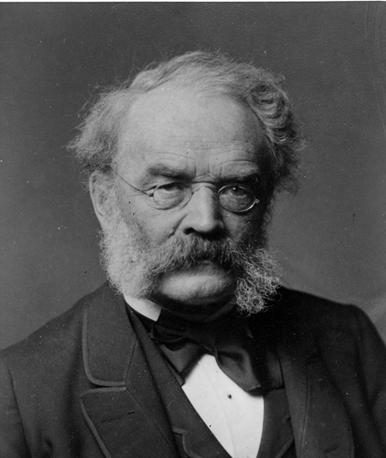|
Karl Scheel Prize
The ''Karl-Scheel-Preis'' (Karl Scheel Prize) is an award given annually by the Physikalische Gesellschaft zu Berlin (PGzB, Physical Society of Berlin), a regional association of the Deutsche Physikalische Gesellschaft (German Physical Society), for outstanding scientific work. The prize was established through an endowment by the German physicist Karl Scheel (1866 – 1936) and his wife Melida. Recipients are awarded with the Karl-Scheel Medal (Karl-Scheel Medaille) and 5.000 Euros. The Karl-Scheel Medal in bronze was designed by the German sculptor Richard Scheibe and has a diameter of 12 cm. List of recipients Names of recipients as stated on the official website of the PGzB. Affiliations refer to the institution of the recipient at the time of the award ceremony. * 2022: Björn Globisch (Technische Universität Berlin; Fraunhofer Institute for Telecommunications, Heinrich Hertz Institute, HHI) * 2021: No Karl Scheel Prize was awarded * 2020: Tobias Heindel (Technische U ... [...More Info...] [...Related Items...] OR: [Wikipedia] [Google] [Baidu] |
Physical Society Of Berlin
The German Physical Society (German: , DPG) is the oldest organisation of physicists. The DPG's worldwide membership is cited as 60,547, as of 2019, making it the largest physics society in the world. It holds an annual conference () and multiple spring conferences (), which are held at various locations and along topical subjects of given sections of the DPG. The DPG serves the fields of pure and applied physics. Main aims are to bring its members and all physicists living in Germany closer together, represent their entirety outwards as well as foster the exchange of ideas between its members and foreign colleagues. The DPG binds itself and its members to advocate for freedom, tolerance, veracity and dignity in science and to be aware about the fact that the people working in science are responsible to a particularly high extent for the configuration of the overall human activity. Conferences and fostering young talent The DPG itself does not carry out any research, but its confer ... [...More Info...] [...Related Items...] OR: [Wikipedia] [Google] [Baidu] |
Fritz Haber Institute Of The Max Planck Society
The Fritz Haber Institute of the Max Planck Society (FHI) is a science research institute located at the heart of the academic district of Dahlem, in Berlin, Germany. The original Kaiser Wilhelm Institute for Physical Chemistry and Electrochemistry, founded in 1911, was incorporated into the Max Planck Society and simultaneously renamed for its first director, Fritz Haber, in 1953. The research topics covered throughout the history of the institute include chemical kinetics and reaction dynamics, colloid chemistry, atomic physics, spectroscopy, surface chemistry and surface physics, chemical physics and molecular physics, theoretical chemistry, and materials science. During World War I and World War II, the research of the institute was directed towards Germany's military needs. To the illustrious past members of the Institute belong Herbert Freundlich, James Franck, Paul Friedlander, Rudolf Ladenburg, Michael Polanyi, Eugene Wigner, Ladislaus Farkas, Hartmut Kallmann ... [...More Info...] [...Related Items...] OR: [Wikipedia] [Google] [Baidu] |
List Of Physics Awards
This list of physics awards is an index to articles about notable awards for physics. The list includes lists of awards by the American Physical Society of the United States, and of the Institute of Physics of the United Kingdom, followed by a list organized by region and country of the organization that gives the award. Awards are not necessarily restricted to people from the country of the award giver. American Physical Society The American Physical Society of the United States sponsors a number of awards for outstanding contributions to physics. Institute of Physics International Americas Asia Europe Oceania See also * Lists of awards * Lists of science and technology awards References {{Science and technology awards physics Physics is the natural science that studies matter, its fundamental constituents, its motion and behavior through space and time, and the related entities of energy and force. "Physical science is that depa ... [...More Info...] [...Related Items...] OR: [Wikipedia] [Google] [Baidu] |
Siemens
Siemens AG ( ) is a German multinational conglomerate corporation and the largest industrial manufacturing company in Europe headquartered in Munich with branch offices abroad. The principal divisions of the corporation are ''Industry'', ''Energy'', ''Healthcare'' (Siemens Healthineers), and ''Infrastructure & Cities'', which represent the main activities of the corporation. The corporation is a prominent maker of medical diagnostics equipment and its medical health-care division, which generates about 12 percent of the corporation's total sales, is its second-most profitable unit, after the industrial automation division. In this area, it is regarded as a pioneer and the company with the highest revenue in the world. The corporation is a component of the Euro Stoxx 50 stock market index. Siemens and its subsidiaries employ approximately 303,000 people worldwide and reported global revenue of around €62 billion in 2021 according to its earnings release. History 1847 to ... [...More Info...] [...Related Items...] OR: [Wikipedia] [Google] [Baidu] |
Physikalisch-Technische Bundesanstalt
The Physikalisch-Technische Bundesanstalt (PTB) is the national metrology institute of the Federal Republic of Germany, with scientific and technical service tasks. It is a higher federal authority and a public-law institution directly under federal government control, without legal capacity, under the auspices of the Federal Ministry for Economic Affairs and Energy. Tasks Together with NIST in the USA and the NPL in Great Britain, PTB ranks among the leading metrology institutes in the world. As the National Metrology Institute of Germany, PTB is Germany's highest and only authority in terms of correct and reliable measurements. The Units and Time Act Bundesgesetzblatt (Federal Law Gazette), volume 2008, part I, No. 28, p. 1185 ff., 11 July 2008] assigns all tasks which are related with the realization and dissemination of the units to PTB. All legally relevant aspects regarding the units as well as PTB’s responsibilities have been combined in this Act. Previously, a ... [...More Info...] [...Related Items...] OR: [Wikipedia] [Google] [Baidu] |
Max Planck Institute Of Colloids And Interfaces
The Max Planck Institute of Colloids and Interfaces (German: ''Max-Planck-Institut für Kolloid- und Grenzflächenforschung'') is located in Potsdam-Golm Science Park in Golm, Potsdam, Germany. It was founded in 1990 as a successor of the Institute for Physical Chemistry and for Organic Chemistry, both in Berlin-Adlershof, and for Polymer Chemistry in Teltow. In 1999, it transferred to newly constructed extension facilities in Golm. It is one of 80 institutes in the Max Planck Society (''Max-Planck-Gesellschaft''). Research Being part of the Max Planck Society, the institute examines nano- and microstructures specifically colloids in which many are found in nature. With discoveries, scientists create tiny apatite crystals in bones, vesicles formed out of membranes, pores in membranes for fuel cells and microcapsules as vehicles for medical drugs - all are larger than an atom, yet too small to be seen with the naked eye. The scientists at the Potsdam-based Institute endeavor to ... [...More Info...] [...Related Items...] OR: [Wikipedia] [Google] [Baidu] |
Stephanie Reich
Stephanie Reich is a German physicist and Professor at the Free University of Berlin. Her research considers the physics of nanostructures, which she studies using experimental characterisation techniques and computational simulations. Early life and education Reich attended the Technical University of Berlin where she studied physics. She earned her undergraduate and master's diplomas in 1998, before embarking on a doctoral programme. After a year as a research assistant, Reich moved to the Institut de Ciència de Materials de Barcelona. In 2002 she was made a Fellow of the Berlin-Brandenburg Academy of Sciences and Humanities. Research and career In 2003 Reich moved to the University of Cambridge as an Oppenheimer Research Fellow. Whilst at Cambridge she held a joint position at Newnham College, Cambridge. She started to work on the characterisation of graphene, In 2007 Reich was appointed Professor of the Physics of Nanostructures at the Free University of Berlin. When ... [...More Info...] [...Related Items...] OR: [Wikipedia] [Google] [Baidu] |
Humboldt-Universität Zu Berlin
Humboldt-Universität zu Berlin (german: Humboldt-Universität zu Berlin, abbreviated HU Berlin) is a German public research university in the central borough of Mitte in Berlin. It was established by Frederick William III on the initiative of Wilhelm von Humboldt, Johann Gottlieb Fichte and Friedrich Ernst Daniel Schleiermacher as the University of Berlin () in 1809, and opened in 1810, making it the oldest of Berlin's four universities. From 1828 until its closure in 1945, it was named Friedrich Wilhelm University (german: Friedrich-Wilhelms-Universität). During the Cold War, the university found itself in East Berlin and was ''de facto'' split in two when the Free University of Berlin opened in West Berlin. The university received its current name in honour of Alexander and Wilhelm von Humboldt in 1949. The university is divided into nine faculties including its medical school shared with the Freie Universität Berlin. The university has a student enrollment of around ... [...More Info...] [...Related Items...] OR: [Wikipedia] [Google] [Baidu] |
Freie Universität Berlin
The Free University of Berlin (, often abbreviated as FU Berlin or simply FU) is a public research university in Berlin, Germany. It is consistently ranked among Germany's best universities, with particular strengths in political science and the humanities. It is recognised as a leading university in international university rankings. The Free University of Berlin was founded in West Berlin in 1948 with American support during the early Cold War period as a Western continuation of the Friedrich Wilhelm University, or the University of Berlin, whose traditions and faculty members it retained. The Friedrich Wilhelm University (which was renamed the Humboldt University), being in East Berlin, faced strong communist repression; the Free University's name referred to West Berlin's status as part of the Western Free World, in contrast to communist-controlled East Berlin. In 2008, as part of a joint effort, the Free University of Berlin, along with the Hertie School of Governance, a ... [...More Info...] [...Related Items...] OR: [Wikipedia] [Google] [Baidu] |
Olga Smirnova (scientist)
Olga Smirnova is a German physicist who is Head of the Strong Field Theory Group at the Max Born Institute for Nonlinear Optics and Short Pulse Spectroscopy and Professor at Technische Universität Berlin. Her research considers the interaction of strong fields with atoms and molecules. Early life and education Smirnova was born in Moscow. She started her undergraduate career studying physics at the Moscow State University. After earning her doctorate in 2000, Smirnova became an assistant professor at the Moscow State University, and interested in attosecond physics. In 2003 she moved to Vienna University of Technology (TU Wien) as a Lise Meitner Fellow. After two years in Vienna, Smirnova joined the theoretical group at the National Research Council Canada in the Steacie Institute for Molecular Science. In 2006 she was made a permanent member of staff at the Steacie Institute. Research and career In 2009, Smirnova moved to the Max Born Institute for Nonlinear Optics and ... [...More Info...] [...Related Items...] OR: [Wikipedia] [Google] [Baidu] |
Paul Drude Institute For Solid State Electronics
The Paul-Drude-Institut für Festkörperelektronik German for ''Paul Drude Institute for Solid State Electronics'' (PDI) is a research institution under the auspices of the ''Forschungsverbund Berlin'' and is a member of the Leibniz Association. The institute is located at ''Hausvogteiplatz'' in Berlin-Mitte, its research activities are in basic research in the fields of physics and engineering and the areas of materials science and electronics/ optoelectronics. History The institute emerged from the ''Central Institute for Electron Physics'' of the Academy of Sciences of the GDR. Based on a recommendation of the Wissenschaftsrat, the institute was newly founded on January 1, 1992, and headed by Klaus Ploog until 2006, followed by Henning Riechert until the end of 2019. The institute is named after the German physicist Paul Drude (1863–1906), who conducted research in the fields of optics and electronics, among others, and gave his name to the Drude theory. Tasks The PDI ... [...More Info...] [...Related Items...] OR: [Wikipedia] [Google] [Baidu] |




